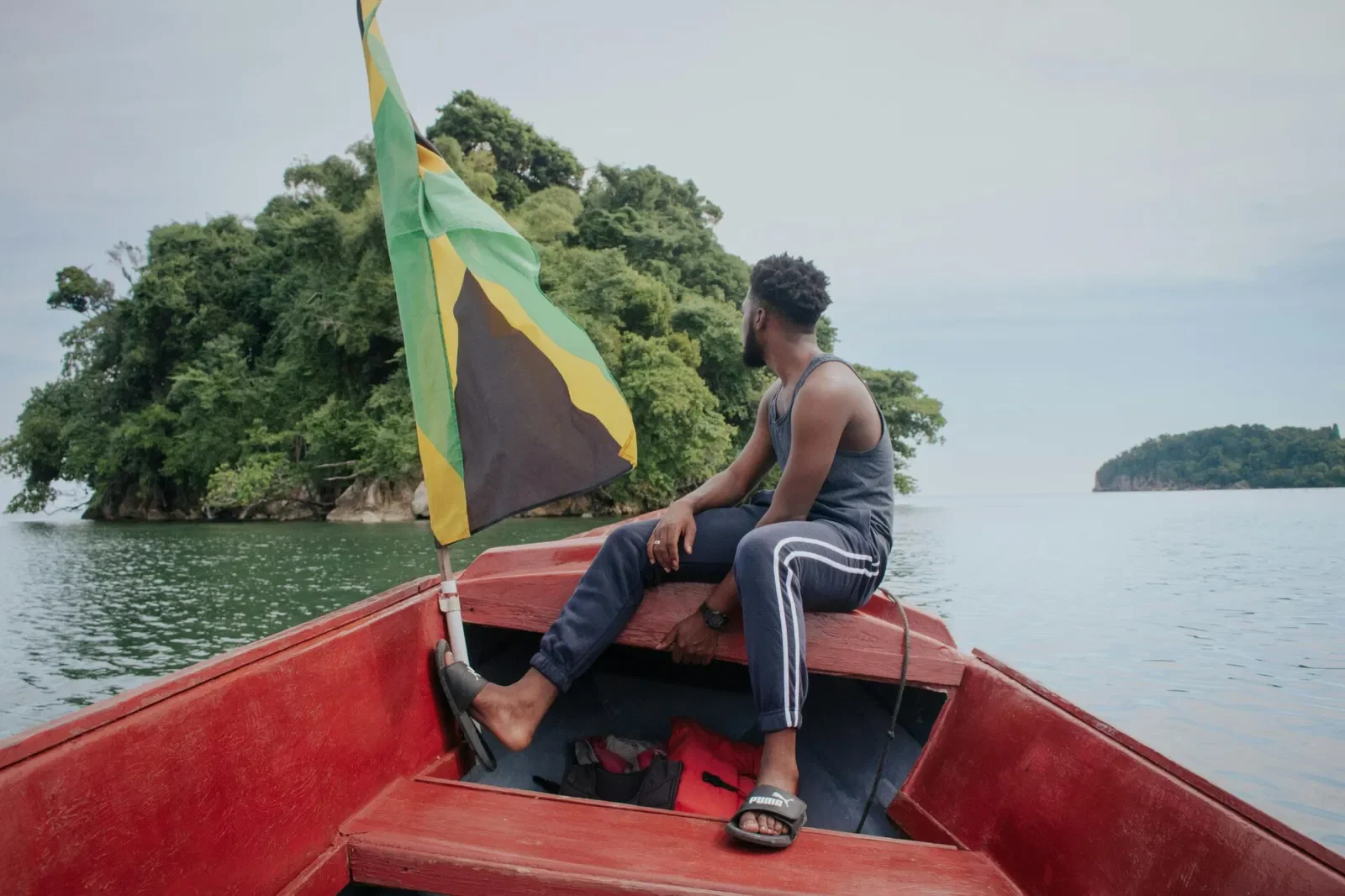Africa-Caribbean Postcards (April 2025) - By Yasmin Minnis
This isn’t Fair Trade, Uncle Sam!
The U.S. recently imposed tariffs ranging from 10% to 38% on imports, and Caribbean nation leaders are pushing back. Leaders argue it’s a blow to sectors like agriculture and fisheries, areas that many Caribbean communities depend on1.
Bajan PM, Mia Mottley and others are asking President Trump to rethink the decision and go back to the negotiating table. These tariffs could mean higher prices on local goods and fewer job opportunities in affected sectors. Aswell as trade tensions with the U.S. that may impact economic stability across the Caribbean.
Mottley expresses Caribbean economies are too small to harm Americas, asking America to recognise the longstanding alliance and ties between both countries2. Does this mean further self-reliance for the Caribbean or does the U.S. have a responsibility to support its longstanding friend, the Caribbean?
Haiti’s Cry Echoes Across the Caribbean
A coalition of gangs in Haiti is allegedly threatening to seize power, worsening an already fragile political environment. CARICOM, which includes 15 Caribbean nations, is urging international help as Haiti’s government cannot handle this alone3. Armed gangs now control approximately 85% of Port-au-Prince, Haiti’s capital, and have expanded their influence on other towns4 leading to widespread chaos and fear. In late March, gangs attached police facilities and orchestrated a mass prison break, freeing over 500 inmates and resulting in at least 60 deaths5. In response, Haiti’s transitional government approved a “war budget” of £208.5 million to bolster security forces, enhance border security, and fund critical social support programs6. A Support Mission, led by Kenyan police, is now on the ground in Haiti to help local authorities regain control. But the mission is already facing hurdles, from limited resources to a shortage of personnel7. What step in the right direction will truly change Haiti’s course, and who will take it?
The Fight for Truth Isn’t Over
More than five decades later, South Africa is reopening the inquest into the mysterious death of Albert Luthuli, a key anti-apartheid leader and Nobel Peace Prize winner.
Prosecutors now believe the original investigation may have been part of a major cover-up8. Luthuli was the former president of the African National Congress (ANC) and a global symbol of peaceful resistance during apartheid. A 1967 inquest ruled that Chief Albert Luthuli was walking on a railway line when he was struck by a train and died after fracturing his skull, but many have long suspected the official story wasn’t the full truth. South Africa’s National Prosecuting Authority now says the original findings may have involved a cover-up by the police and judiciary at the time. The new inquest is part of a wider effort to reopen unsolved or questionable activist deaths from the apartheid era.
Luthuli was the first African to win the Nobel Peace Prize, and his life shaped the freedom South Africans have today. Revisiting this case is about truth, justice, and accountability, even decades later. It’s also a reminder of how systems can silence voices, and why the next generation must keep asking hard questions. What really happened to Albert Luthuli, and why hasn’t the truth surfaced yet?
Playgrounds With Purpose – Teen wins earth prize for green innovation
Seventeen-year-old Amara Nwuneli just won the 2025 Earth Prize and $12,500 (£9,425) for turning trash into treasure, by building a playground in Lagos entirely from recycled materials9. Amara’s project is more than just a playground, it’s a symbol of sustainability and innovation led by youth.
The eco-friendly playground was made using discarded plastics and repurposed materials to create a safe, colourful space for kids. With her prize money and growing support, Amara plans to build three more parks across Nigeria, each designed to promote environmental awareness and community play.
From Lagos to the world - Amara’s vision is proof that big impact can come from bold ideas. Could this inspire the next generation to think creatively about climate action and make real change?
Somalia’s Turning Point – Debt Relief Opens New Doors
Somalia just secured a $306.5 (£230.4) million10 debt relief agreement with the Arab Monetary Fund, a major step forward in the country’s push to rebuild its economy and rejoin global financial systems. The deal is part of Somalia’s wider plan to recover from decades of conflict and economic instability, and to gain the trust of international lenders again.
By easing its debt load, Somalia will have more breathing room to focus on reforms, job creation, and essential services for its people. This agreement also shows growing support from global partners who are betting on Somalia’s comeback.
The country has been working to improve its financial systems, reduce corruption, and strengthen institutions, this deal signals progress. Are we paving the way for progress, or just a new form of dependency?
Footnotes/Sources:
1. More Caribbean countries respond to new US tariffs - Loop News
2. "We Are Not Your Enemy": CARICOM Chair Mottley Urges Trump to Spare Caribbean from Tariffs - St. Lucia Times
3. CARICOM unable to reach consensus on Haiti - Loop News
4. Haiti's government adopts 'war budget' as more towns fall to gangs | AP News
5. Haiti approves "war time budget" as criminal gangs wreak havoc | Reuters
6. Haiti approves "war time budget" as criminal gangs wreak havoc | Reuters
7. Guterres to propose UN assumes funding for struggling mission in Haiti | AP News
8. Albert Luthuli: South Africa re-opens inquest into Nobel laureate's death - BBC News
9. Teen Wins $12,500 for Building Recycled Playground, Plans 3 More Parks - Business Insider
10. Arab Monetary Fund provides $306.5m of debt relief to Somalia - Central Banking
Disclaimer: we do not own the rights to this image - it is being used purely for educational/journalistic purposes. Link to image






